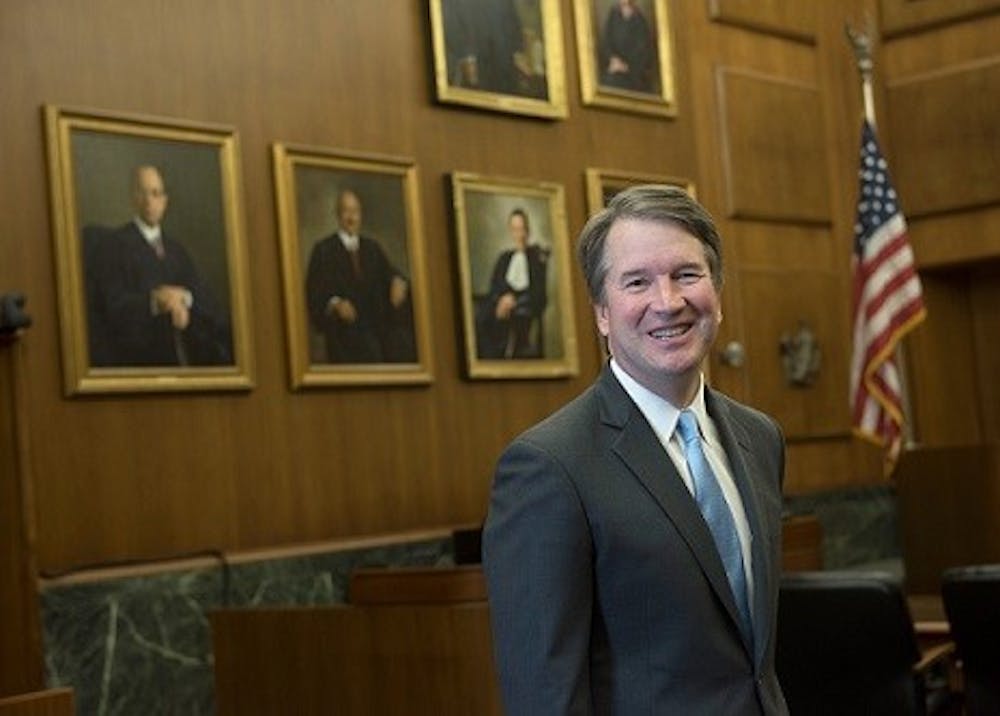Supreme Court Justice Anthony Kennedy recently announced that he would retire, effective July 31. About two weeks later, President Trump revealed that he would nominate Brett Kavanaugh, a judge currently on the U.S. Court of Appeals for the D.C. Circuit, as Justice Kennedy’s replacement.
As soon as news broke that Kennedy was retiring, Democratic strategists started coming up with game plans to block the future nominee, prior to even knowing who would be picked to replace the retiring justice. This absolute opposition to a Supreme Court nomination for blatantly political reasons hurts our judicial institutions.
As former President Barack Obama wrote in a 2016 op-ed, “[T]reating the Supreme Court like a political football makes the American people more cynical about democracy. When the Supreme Court becomes a proxy for political parties, public confidence in the notion of an impartial, independent judiciary breaks down. And the resulting lack of trust can undermine the rule of law.” He is right. The recent politicization of the Court is making it appear like a panel of nine unelected politicians hoping to score personal political wins, rather than the non-partisan institution that it is meant to be.
Senate Democrats will argue that what they are doing is fair retaliation against Republicans for refusing to have a vote for Merrick Garland. I agree that the treatment that Garland received was detestable and that he should have been confirmed by the Senate, but just because the Republicans successfully stopped a nominee for purely political reasons does not mean that the Democrats should do the same. Apart from the principled reasons stated above, Democrats would be making a political mistake to politicize Kavanaugh’s Supreme Court nomination.
When Mitch McConnell employed the delay tactics on Garland, the strategy was straightforward — obstruct until the election, win the election and confirm a conservative justice. This time, however, it is unclear whether delaying has a legitimate endgame. First of all, Democrats will need to be completely unified in their opposition to Kavanaugh and convince one or two Republicans — depending on whether John McCain returns to Washington to vote — to oppose as well. Given that three Democrats broke with their party to vote for Neil Gorsuch and that the two leading Republican moderates — Susan Collins and Lisa Murkowski — already voted to confirm Brett Kavanaugh for his current position in 2006, it seems quite unlikely that Democrats will be successful in rejecting Kavanaugh for the Supreme Court.
However, it is not just that it would be difficult for Democrats to pull off. Even if they are successful in stopping the nomination, it would do them no good if they don’t win the Senate, since Trump could simply nominate someone else. Furthermore, rejecting Kavanaugh for political reasons could do a lot of harm in November. Many endangered red-state Democrats will have to explain to their conservative constituents why they voted against a qualified candidate while their opponents paint them as puppets of Chuck Schumer and Nancy Pelosi. Additionally, it would likely push more republicans to vote to “save the Supreme Court.” This would be especially harmful to Democratic incumbents running in conservative states like Montana and West Virginia. Conversely, if Democrats largely vote to confirm Kavanaugh — assuming nothing damning is found in his record — it could plant the seeds for a potentially potent “Return to Normalcy” style campaign in 2020.
For argument's sake, let’s say that the Democrats not only block Kavanaugh but also win the Senate in November. What do they get in return for all the trouble? At best, a less conservative judge. Trump is simply not going to nominate the next Ruth Bader Ginsburg to the Supreme Court, so the most the Democrats could hope for would be a centrist in the mold of Anthony Kennedy. However, what would most likely happen is a lot of gridlock and political posturing, leading to a long-standing, eight-person Court, which would be split 4-4 in the most important and controversial cases and unable to set a precedent for the lower courts. Thus, these issues would be left unresolved and the Court would be unable to effectively do its job.
Ultimately, the Senate should do its job — vet the nominee, ask difficult questions and make a decision about whether he should be on the Court. If in the coming weeks and months something genuinely disqualifying comes out about Kavanaugh, then the Senate must reject his nomination, but it would be bad for the country and for Democrats to vote against him just because he was nominated by a Republican.
Gavin Scott is a Senior Associate Opinion Editor for The Cavalier Daily. He can be reached at opinion@cavalierdaily.com.







